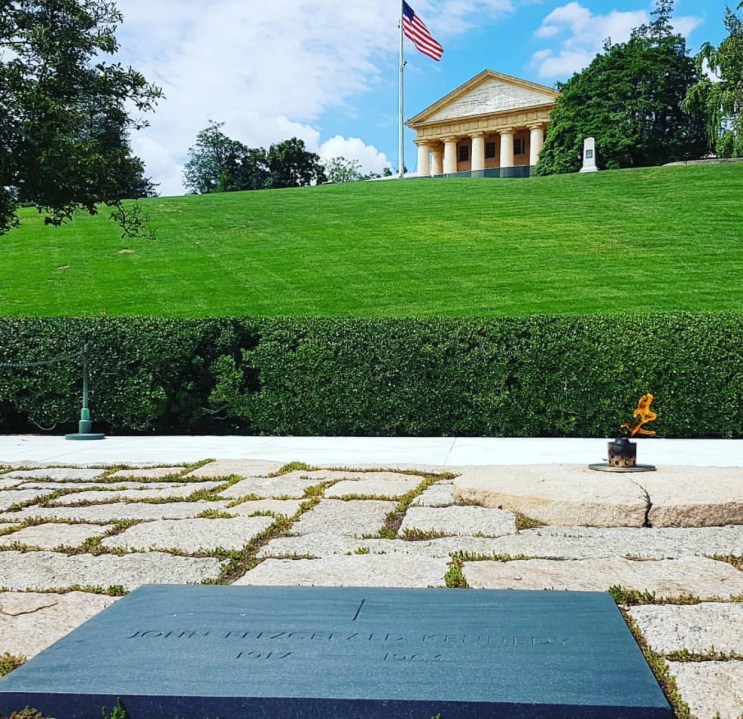BOSTON — On the occasion of President John F. Kennedy’s birthday, here’s a look at one of the most documented figures of the 20th century.
John Fitzgerald Kennedy was born in Brookline, Massachusetts, on May 29, 1917, and was assassinated while in office on November 22, 1963. He spent a good portion of his life as a public figure, from one of the wealthiest, most well-connected families in New England. After his tragic death, most of his life has been written about in great detail.
Here are a few interesting facts about the 35th president:
He grew up partly in the Bronx.
The stereotype of Kennedy is that he was a born-and-bred Bostonian. In reality, Kennedy spent the first 10 years of his life in Brookline, in suburban Boston, until his family moved to the Bronx. The future president spent his middle-school years in the Bronx area until his family sent him to private school in Connecticut.
His father escaped a terrorist attack just after JFK was born
Joseph Kennedy escaped the infamous 1920 Wall Street bombing. An unknown group of anarchists planted a bomb in a wagon full of lead weights on the street. The explosion killed 38 bystanders on Wall Street. The elder Kennedy was thrown to the ground by the blast, but was unharmed.
Kennedy wasn’t the youngest president ever.
That title goes to Theodore Roosevelt, who was a little more than nine months younger than Kennedy, at the age of 42 years, 10 months, when he succeeded William McKinley as president in 1901. However, Kennedy was the youngest person elected president, at the age of 43 years, seven months, when he became president in 1961. Bill Clinton was the third youngest president, at 46 years of age.
His family was very, very rich.
President Kennedy was one of the richest presidents ever, based on the estimated value of his family’s fortune. In fact, his part of that fortune may have been worth $1 billion at the time of Kennedy’s death. His father, Joseph Kennedy, was involved heavily in Wall Street and other investment opportunities.
President Kennedy played the role of movie producer.
Warren Beatty almost played Kennedy in the movie PT-109, which was based on the sinking of Kennedy’s boat in the Solomon Islands. President Kennedy wanted Cliff Robertson to play a young Lieutenant Kennedy in the war movie, but the First Lady, Jacqueline Kennedy, wanted Beatty. The president’s choice wound up appearing in the 1963 movie. Kennedy also helped pick the movie’s director.
He was the only president to win a Purple Heart.
Kennedy was awarded the Purple Heart for his service in the Pacific during World War II. Two other former presidential candidates, John Kerry and John McCain, were Purple Heart recipients.
Kennedy almost died twice before he became president.
Not including his run-in with a Japanese ship on the PT-109, Kennedy long suffered with health problems. Today, those health issues are well-documented, and two incidents resulted in a priest giving Kennedy last rites in a hospital. In 1948, when Kennedy was in Great Britain, his health looked dire after he was diagnosed with Addison’s disease, according to author Robert Dallek. And in 1954, Kennedy nearly died from an infection after back surgery.

Kennedy was an experienced politician at a young age.
In 1946, Kennedy ran for the House of Representatives at the age of 29 and won. His older brother had been expected to be the family’s political standard bearer, but he was killed in action during World War II. Kennedy was elected three times to the House and two times to the U.S. Senate before becoming president, and he had more national political experience than our two most recent presidents. Health problems did keep Kennedy from attending Congress for some periods.
Kennedy’s popular vote win over Richard Nixon was very, very narrow.
Kennedy defeated Nixon in the 1960 election when votes were counted in the Electoral College, by a margin of 303 to 219. But in the popular vote, Kennedy won by 112,000 votes out of 68 million cast. Also, arguments persist to this day about vote-counting in two states: Illinois and Texas. If Nixon had won those two states, he would have defeated Kennedy by two votes in the Electoral College.
JFK recorded conversations in the White House.
Actually, Kennedy wasn’t the first president to record private conversations in the White House (that was President Franklin D. Roosevelt). One theory for the Kennedy taping system was that the president had already written two books and wanted the tapes for when he wrote his memoirs after leaving office. Many of the tapes have been declassified over the past decades.

















